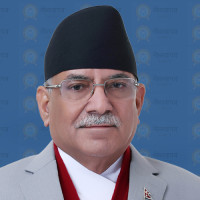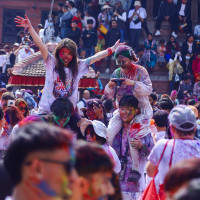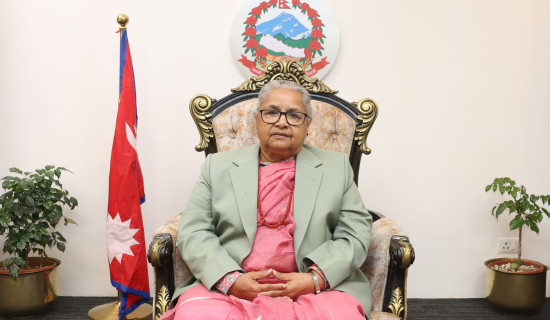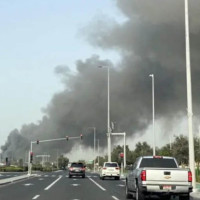- Monday, 2 March 2026
Flawed Education Breeds Negativity
In the aftermath of two big political revolutions in Nepal, one can hear the cacophony of harsh comments on the executive officials of various political institutions – as high as head of the federal government to as low as ward chairman of municipalities. No less adverse criticisms can be heard about the professionals of administrative and educational institutions. Not simply in interpersonal communications but in the pages of private electronic devices whose messages are public. One might retort this is all natural in the age of democracy where every citizen is supposed to enjoy freedom. But decent citizen is expected to possess the common sense knowledge of what is meant by freedom under democracy. It is ridiculous to argue that democracy means a system with unchecked freedom, which on the contrary, has been a common practice in this country of yet infant democracy.
As a matter fact, no one in this universe can enjoy absolute freedom as GB Shaw (1935) argued in an essay under the title of the same word. In that radio broadcast which later was converted into the write-up of a non-fictional essay, he asked a question “what is a perfectly free person?” and then answered by claiming that a truly free person is one who can do whatever he likes, wherever he likes and whenever he likes and he may even choose to do nothing.
Relative term
While so saying, he did not mean to stipulate an all agreed-upon definition of absolute freedom. He simply meant that freedom is a relative term which is desirable in some cases whereas undesirable and even offensive in some other cases. By contrasting freedom with slavery into two broad categories – natural slavery and unnatural slavery – he went on to explain that the first is natural slavery of man to nature which is all enjoyable (one wants to sleep and enjoys a lot if allowed to sleep) and the second is unnatural slavery of man to man (no one wants to be the servant of someone else like himself with similar blood and flesh undergoing the same chemical processes).
There is no denying that every citizen can enjoy the freedom of expression, therefore, no restrictions on the freedom of speech should be imposed by the state on any pretext. However, this unqualifying claim is as pleasant as misleading. It is pleasant for those who have little knowledge of the state affairs and no sense of individual responsibility to the nation and community as a whole. On the other hand, it is misleading in the sense that it fosters the culture of negativity. To foster the culture of such uncritical comments on the people holding responsible positions is quite frustrating and a bit detrimental to the growth of decent civilization and culture.
To say that the citizens are utterly unthinking is not true, however. The root cause of the culture of uncritical negative comments is the unscrupulous action of some executive officials themselves. During the Rana Regime, the despotic rulers made decisions to allocate the state resources in their own interest. They were unfeeling, inconsiderate, and extremely selfish. Later under the Panchayat system, the kings usurped power to their maximum benefit. Even under constitutional monarchy and republicanism, some executive officials are allegedly involved in irregularities. When the officials in power exploit the resources for personal gain, the citizens of that nation make angry reactions against them.
Critics say this exactly has happened in our country for a few years. When we look at the pages of social media, they are filled with words full of fury and resentment. If we hear the voices in videos, YouTube, and TikTok, they are filled the harsh sounds of fury. One might argue again anyone has the right to criticise the executive officials because fundamental rights are provisioned in the constitution. Some criticisms are genuine as the officials are sometimes deaf to the citizen’s considerations. But the angry reactions that arise solely out of emotion are meaningless. Of course sound arguments are always allowed by the state but the baseless unsound arguments lead the society nowhere.
The next root cause of the culture of negativity is the defective education devoid of critical thinking. Our curricula and pedagogical practices are flawed. This is especially in school education system. Courses are mostly designed with a view to inculcating lopsided worldviews into the minds of students. Instead of setting the scientific worldviews in children’s minds, our courses are more susceptible to superstitious beliefs. Instead of fostering the culture of individual liberty, gender equity, and social justice, our courses are rather prone to anarchy, gender inequality, and ethnic hierarchy. School children are not taught critical thinking so they have no critical insights. Children are made to believe what teachers tell them whether valid or invalid, whether sound or unsound views about life and the world.
Conventional courses
University education is no better either. Our courses in humanities and social sciences should have been such as to open-up new avenues to see the world from many different perspectives. Our teachers too have not been hardworking to continuously study and explore. They are not simply to blame. The educational authorities do not provide ample opportunities to be engaged in research. For several decades, our practices have been simply to enter into the classroom and teach conventional courses in traditional methods. No significantly new knowledge is disseminated to the students and the public. This is why our young people are becoming uncritical thinkers and behaving in like manner.
To promote the culture of critical thinking and the comments based on critical thinking, first and foremost we need to alter the curriculum, pedagogy and the entire education system which ultimately leads to the development of truly ideal society where people criticise and appreciate ascertaining the merits and demerits of words said and deeds done by the executive officials.
(The author is the chairman of Molung Foundation. bhupadhamala@gmail.com)
















